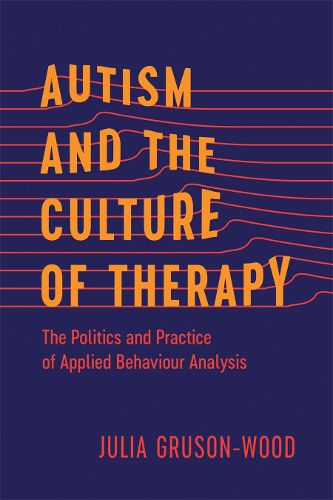Readings Newsletter
Become a Readings Member to make your shopping experience even easier.
Sign in or sign up for free!
You’re not far away from qualifying for FREE standard shipping within Australia
You’ve qualified for FREE standard shipping within Australia
The cart is loading…






Applied behaviour therapies are highly proscriptive and controversial evidence-based autism interventions that have, in many settings, become the standard of care. Autism and the Culture of Therapy is the first empirical study of applied behaviour therapies. To understand such therapies, we need to assess them in everyday practice, through the multiple interpretations, ethical frameworks, and applications of practitioners.
Julia Gruson-Wood examines how applied behaviour checklists, forms, protocols, and plans shape professional consciousness, how managerial governance strategically appropriates clinical data, how the rise of para-practitioners democratizes science, and how gender, sexuality, and identity politics imbue clinical practice and social responses to autism.
Drawing on Ontario as a case study, Autism and the Culture of Therapy reveals the fascinating and complex workplace culture of therapy providers, telling the story of a clinical field that has risen along with rates of autism diagnosis, and redefined what autism means.
$9.00 standard shipping within Australia
FREE standard shipping within Australia for orders over $100.00
Express & International shipping calculated at checkout
Applied behaviour therapies are highly proscriptive and controversial evidence-based autism interventions that have, in many settings, become the standard of care. Autism and the Culture of Therapy is the first empirical study of applied behaviour therapies. To understand such therapies, we need to assess them in everyday practice, through the multiple interpretations, ethical frameworks, and applications of practitioners.
Julia Gruson-Wood examines how applied behaviour checklists, forms, protocols, and plans shape professional consciousness, how managerial governance strategically appropriates clinical data, how the rise of para-practitioners democratizes science, and how gender, sexuality, and identity politics imbue clinical practice and social responses to autism.
Drawing on Ontario as a case study, Autism and the Culture of Therapy reveals the fascinating and complex workplace culture of therapy providers, telling the story of a clinical field that has risen along with rates of autism diagnosis, and redefined what autism means.